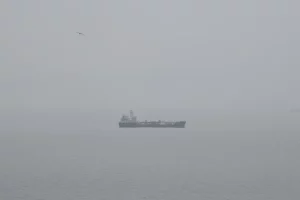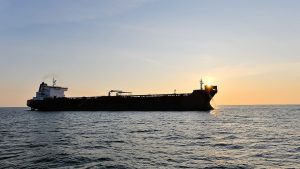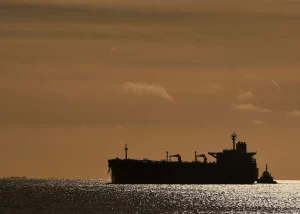The detained tanker Kiwala will not leave Estonian waters for now due to a number of violations

Estonian authorities are demanding that technical deficiencies be corrected and insurance checks be carried out before allowing the vessel to continue its voyage.
The tanker Kiwala, which was detained in Estonian territorial waters on April 12, will remain in the country indefinitely, Estonian broadcaster ERR reported.
The authorities are expecting the 40 deficiencies to be corrected, documents to be checked and insurance to be confirmed. The detained vessel belongs to a Mauritian company, which officials say is ready to cooperate. Work has already begun on technical improvements, including crew training.
“If all other technical deficiencies on the vessel are corrected, which were identified during the inspection on Friday, the vessel will have the opportunity to inform us about this, invite us on board, and then we will be able to conduct a second inspection,” said Kristian Truu, director of the Maritime Service of the Estonian Transport Authority.
The decisive factor remains the confirmation of the vessel’s registration and insurance. At the moment, the Estonian side maintains contact with the previous flag state – Djibouti, but it is not excluded that the owners may try to change jurisdiction.
The administration emphasizes that the detained vessel is not a financial burden for the state: the provision of the crew remains the responsibility of the owner. The Estonian Navy continues to guard the tanker – currently this is being done by the minesweeper Admiral Cowan.
However, concern is raised about the further fate of Kiwala and dozens of other vessels that have gathered in the eastern part of the Baltic Sea waiting for access to Russian ports. Most of them are in a technically unreliable condition and pose an environmental threat.
Deputy Minister of Foreign Affairs Kerli Veski emphasized the need to strengthen monitoring and demonstrate an active presence in the region. However, international maritime law requires freedom of navigation, which makes it difficult to respond to the actions of the “shadow fleet” – especially in conditions where ships change flags, jurisdictions and falsify routes.
The day before, USM wrote that Donald Trump extended the ban on ships associated with Russia from entering American ports.





